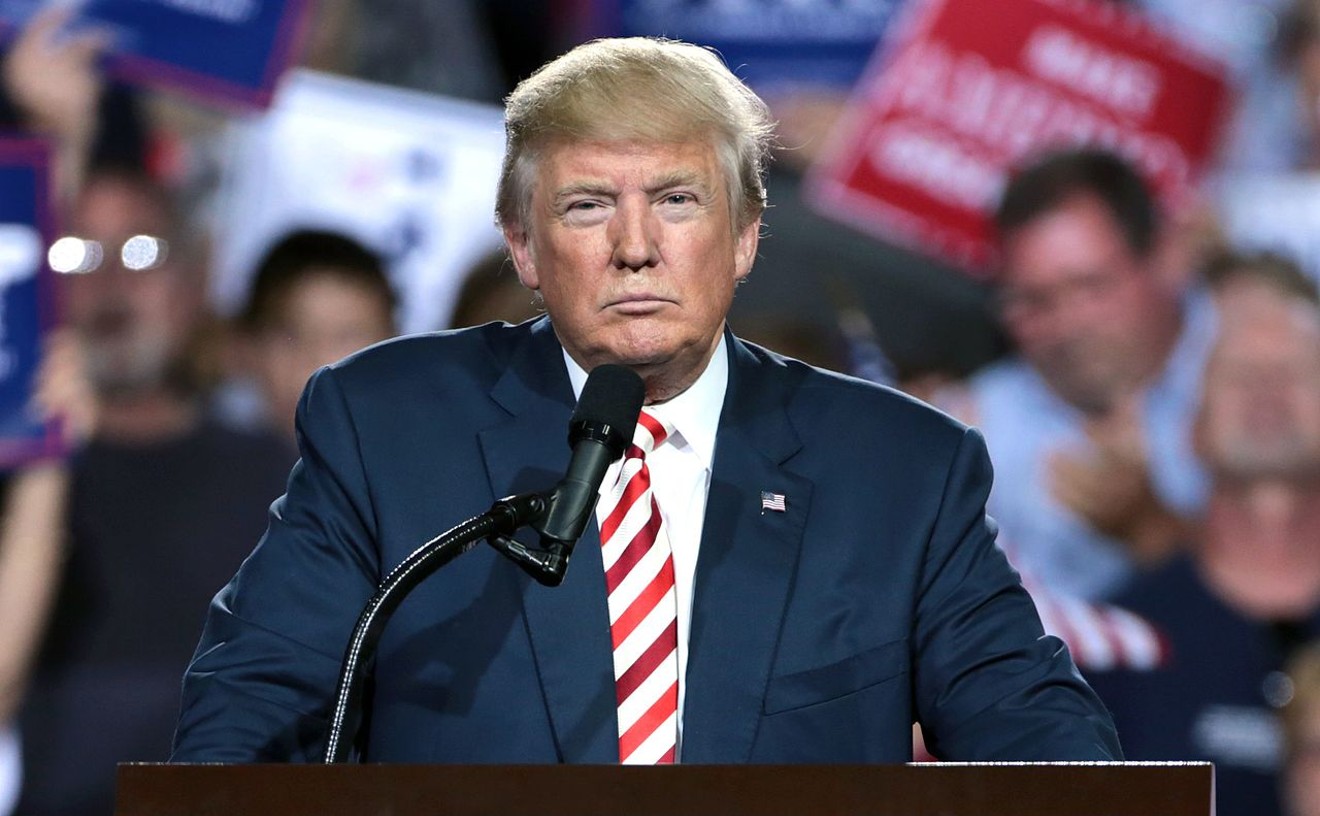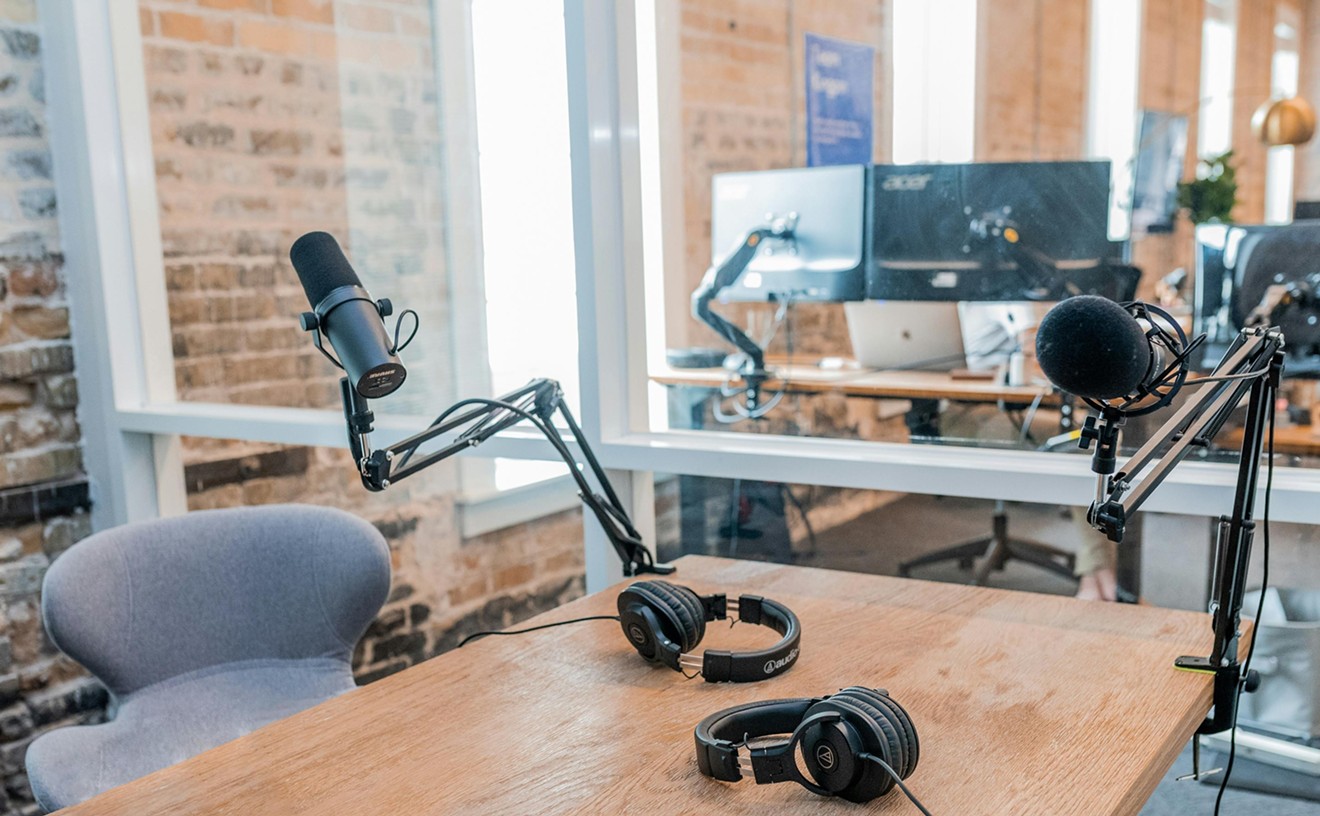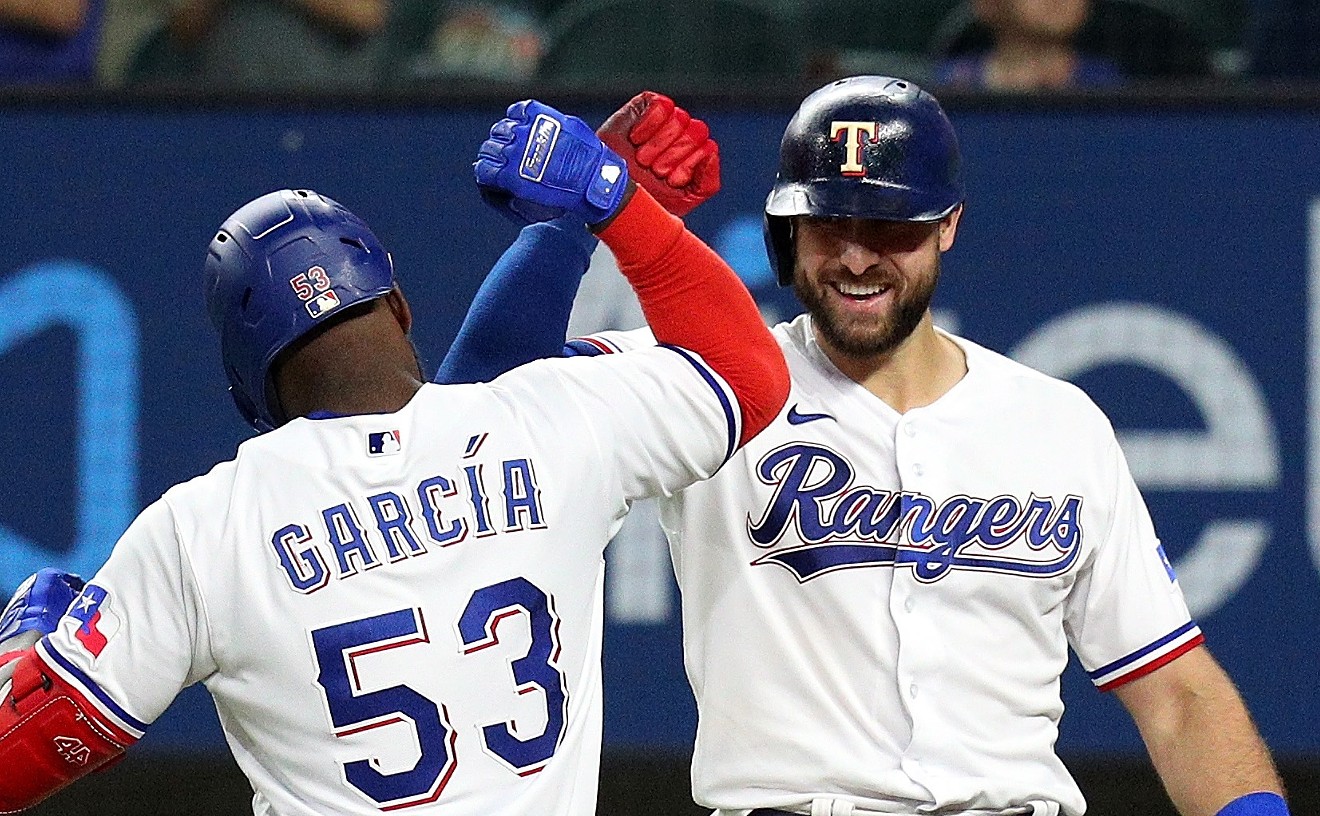In its infancy, Stonebriar Centre offered vacant spaces and ample parking. The “$5 Billion Mile” was just a twinkle in some developer’s eye. The Dallas Stars’ practice facility was the area’s lone sports destination. To most people in Dallas, anything north of State Highway 121 was considered Oklahoma.
Now? You know how you first love a song and take pride in having discovered your band, only to go to their concert and see that apparently everybody loves your band, too? For the Frisco RoughRiders, it’s like that.
The former secret known as Frisco is exposed. Business is booming in the suburb named Money magazine’s “Best Place to Live in America in 2018.” Residents are bustling. Competition for entertainment dollars is suddenly crowded. Since the club planted its lonely flag near the border dividing Collin and Denton counties in 2003, the oxygen-hogging Dallas Cowboys have moved in just across the tollway.
Other new professional sports neighbors include FC Dallas (soccer), the Texas Legends (basketball), Texas Revolution (arena football), Dallas Rattlers (lacrosse) and — coming soon — the PGA and its 600-acre, $500 million headquarters. It’s not just the teams and their games, but also their attractive venues such as the Ford Center, Toyota Stadium, Comerica Center, Dr Pepper StarCenter and state-of-the-art high school football stadiums in nearby McKinney and Allen.
As if having fans getting lost in Ikea wasn’t enough worry for the RoughRiders.
Once the only game in town, these days Frisco’s baseball outfit is scrambling to find new ways to remain relevant and profitable. In a business whose success depends partly on selling sponsorships, growing competition from other sports franchises for advertising dollars has transformed the RoughRiders from the hunted into hunters.
Game attendance, meanwhile, has dropped steeply from the days when the RoughRiders were new and the team was essentially the sole sports attraction in Frisco. Though the team hosted four of the franchise’s top 10 largest crowds in 2018, they’ve lost almost 30 percent of their audience from their inaugural peak. Attendance during the 2018 season was down 198,718 overall and 2,922 per game from the 2003 debut season, when they drew 666,977 fans at an average of 9,808 per game.
“We love the proliferation. The more, the merrier,” says RoughRiders president/general manager Andy Milovich. “To us, all the growth means an influx of even more passionate sports fans. Where do you usually find a fast-food restaurant? On the corner with a bunch of fast-food restaurants.”
“We’ve reinvented ourselves from the ground up, and we’re perfectly poised for explosive growth." – RoughRiders president/general manager Andy Milovich
tweet this
Nonetheless, in a nod to the changing business climate and in an attempt to maximize their financial potential, the RoughRiders recently performed an internal audit and aggressively tweaked their model. In advance of this month’s spring training comes a little spring cleaning.
“We’ve reinvented ourselves from the ground up, and we’re perfectly poised for explosive growth,” Milovich says. “We realize we’re in one of the fastest-growing economic epicenters in the country, and we’re prepared to keep pace.”
Two current and one former team employee, who spoke on condition they aren’t named, paint a much less rosy picture.
“Everyone is confused, really stressed out,” says one person who works for the team. (We’ll call them Employee No. 1.) “We’ve seen our dirty laundry, and it’s not good.”
Adds a former employee, “They need to change the way they operate, because their big revenue streams are drying up. If they don’t, they’re doomed.”
***
On the afternoon of Jan. 4, Milovich summoned the RoughRiders’ 52 staff members for a back-from-vacation meeting in the team’s clubhouse. Following the offseason review, he was ready to deliver the state-of-the-franchise address.
The RoughRiders have been a slick, successful operation since their inception. Originally shepherded by Scott Sonju (son of original Dallas Mavericks general manager Norm Sonju), the business side has consistently attracted fans, produced profit and earned a sterling reputation as a professionally run organization known for delivering value. The RoughRiders established themselves as the affordable, convenient alternative for Dallas baseball fans weary of the trek to Arlington to watch the big boys.
In 2014, Sonju was named Texas League Executive of the Year while joining former Rangers co-owner Chuck Greenberg to buy the franchise from Mandalay Baseball Properties for $32 million. (Latest estimates from Forbes magazine, in 2016, assess the team’s value at $37 million.) Sonju departed early in 2017, leaving the RoughRiders in Greenberg’s hands.
Greenberg, a former Pittsburgh attorney and savvy negotiator, once helped the NHL’s Penguins stay in Pittsburgh and out of bankruptcy. In 2010, he joined with Nolan Ryan on a team of investors that outbid Mavericks owner Mark Cuban to purchase the Rangers.
Greenberg quickly irked Ryan and Rangers general manager Jon Daniels by attempting to implement what they thought were radical marketing ideas and too much hands-on ownership. Greenberg split with Rangers’ ownership in less than a year but maintained ties with the organization by owning its Class A affiliate in Myrtle Beach, South Carolina.
While Greenberg oversaw his three minor league franchises (he also owns a Class A affiliate of the St. Louis Cardinals in State College, Pennsylvania), he additionally in late 2017 made a failed bid to buy the NHL’s Carolina Hurricanes. With Sonju gone and Greenberg swamped, the RoughRiders’ day-to-day dealings were handled from 2017 to July 2018 by Jason Dambach, a longtime Greenberg associate who split his time between the teams in Pennsylvania and North Texas.
“That’s when things started falling through the cracks,” the former employee says.
When it became apparent last summer that the RoughRiders needed their first comprehensive physical since he bought control four years earlier, Greenberg called in Milovich, his longtime partner and a baseball lifer with 30 years’ experience. He’s overseen the Frisco operation for seven months.
When asked Feb. 4 about the health of the RoughRiders, Greenberg, who lives in Westlake, dismisses the anonymous employee complaints and expressed optimism, pointing to a recent record-setting sales day to begin February on the heels of the franchise’s all-time biggest sales month in January.
“We’re rolling out our new tactics, and we’re crushing it,” Greenberg says. “Definitely moving in the right direction.”
In 2018, for the 14th consecutive season, the RoughRiders led the eight-team Texas League in attendance, drawing 468,259 fans and averaging 6,886 for 68 home dates. In 2017 they averaged 6,812.
“It’s not like we were broken,” Milovich says. “What we’re doing is proactive, not reactive. We’ve held focus groups, talked to thousands of fans, curated anecdotal evidence. All in the name of upping our game. Look, Chuck has very high standards. Mine are even higher.”
But according to a second employee who attended the staff meeting, Milovich said otherwise behind closed doors. Employee No. 2 claims the president revealed organizational financial trouble in the form of missed payments to multiple partners, the continued absence of a naming-rights sponsor for their ballpark and even the cost-cutting possibility of dropping their traditional catering company and bringing food-and-beverage service in-house.
“You hear things and see things … a past-due bill here and there, but no big deal, right?” Employee No. 2 says. “But this floored us. Milo told us that he had been misled by our situation, and that things were much worse than he anticipated. We were all shocked. I know for sure of one person from sales that left the meeting and immediately went and called the Mavericks looking for a job. Some of the younger people just out of college, they’re just happy to be working. But the ones that have been here, we got the gravity of the situation.”“You hear things and see things … a past-due bill here and there, but no big deal, right? But this floored us." – RoughRiders employee
tweet this
Says Employee No. 1, also present at the meeting: “It was depressing. Most of us were just, like, zombies. Disillusioned. We think we have a plan to make it work. But this sounded bad. Real bad.”
While allowing for the possibility of “miscommunication,” a bewildered Milovich flatly denies the employees’ claims.
“It’s perplexing,” he says. “I’m just not sure how anybody that was actually in that meeting … how that could be their takeaway. I’ll tell you this: The past couple weeks I’ve never seen our staff more energized or focused. Internally, the enthusiasm is off the charts.”
***
The contrasting views of the RoughRiders as both well-oiled machine and discombobulated Fyre Festival appear to be linked to how one sees the team’s struggle to sell naming rights to its stadium, but there are other issues.
For example, though Employee No. 2 claims Milovich admitted the team hadn’t paid rent owed to Frisco for use of its stadium since October, Milovich himself denies it. “We don’t owe the city one dime,” he says. City of Frisco director of communications Dana Baird agreed on Feb. 6, indicating that, although the RoughRiders “occasionally” have been late on payments, they are current. “They’re a good partner in good standing,” Baird says.
The former employee points out that Frisco has good reason to back the team. “The city needs the team as much as the team needs the city,” the ex-employee says. “You think Frisco could fill that park 100-plus days a year if they left?”
Employee No. 1 also says Milovich was “flustered” by what he said was $1.1 million owed to the team’s food-and-beverage provider, Chicago-based Professional Sports Catering. “He told us he wasn’t sure how we could make that payment, and that we might have to do things ourselves,” Employee No. 1 says. “You have any idea how crazy that made us? None of us signed up to serve hot dogs and mix drinks.”
Milovich confirms the team owes PSC but says the “working contract” allows for it. “We owe the same amount to them at the same time of year, every year,” he explains. “We’re negotiating a new contract and the payment terms will likely change, but it’s not yet finalized. Nothing’s out of the ordinary.”
When asked for clarification on the RoughRiders’ payment schedule, PSC Chief Operating Officer Jeremy Goldblatt offered only: “We’ve had a partnership with the Frisco RoughRiders for six seasons, and our team at the ballpark is currently working hard in preparation to serve the great fans at Dr Pepper Ballpark this coming season.”
“Working on deals and selling deals without knowing how much you are going to get paid? Yeah, that’s a great way to do business.” – second RoughRiders employee
tweet this
Both current employees independently grouse about the team discontinuing Christmas bonuses and failing for months to provide clarity on what was promised to be a new sales commission structure for 2019. “Working on deals and selling deals without knowing how much you are going to get paid? Yeah, that’s a great way to do business,” Employee No. 2 says.
Milovich says year-end bonuses for sales staff are still in play but are now merit-based instead of automatically being tied to a year-end holiday. He bristles when informed of a potential mix-up regarding commissions. “That has been communicated to the staff in meetings and in writing, multiple times,” Milovich says. “There is zero margin for error for me not to have that properly communicated to our people. It just can’t happen. It didn’t happen.”
Employee No. 2, however, says that on Feb. 5 — only hours after Milovich got wind of internal displeasure going public — the commission structure was finally outlined in a hastily called meeting.
“What do you know,” Employee No. 2 says, “exactly the same as last year. After all this time of them promising us there was going to be changes, increases. Same as last year.”
***
According to the employees past and present, the RoughRiders’ naming-rights threat has reached a crisis.
If nothing changes before opening day on April 4, for the second consecutive season the team will play in a Dr Pepper Ballpark that is no longer technically Dr Pepper Ballpark.
After a 15-year relationship, the Plano-based soft drink company didn’t renew its sponsorship with the RoughRiders when its contract expired Oct. 1, 2017. Though Dr Pepper remains a partner with vending rights in the park, it also recently diversified its robust Collin County sports portfolio with financial commitments to the Frisco school district, Toyota Stadium, and the Cowboys’ Star complex and Ring of Honor Walk.
Though it stopped paying for the privilege 16 months ago, Dr Pepper’s signage remains up throughout the RoughRiders’ stadium and the “Dr Pepper Stadium” name and logo is still prominent on the team’s website and promotional materials.
“It would cost money to pull all those signs down,” the former employee says. “We know money is pretty tight up there so, congrats Dr Pepper, free advertising!”
Foreseeing the end of their Dr Pepper deal, the RoughRiders began searching for a new naming-rights partner during the 2017 season. According to a story in the Dallas Business Journal that August, Greenberg was swinging for a “grand-slam deal” that would be the largest in the history of minor league sports: $18 million over 12 years, or $1.5 million per season. Said a story the same week in The Dallas Morning News, “This shouldn’t be a hard sell.”
Almost a year and a half later, there is no deal.
Although Employee No. 1 alluded to “promising” talks with an insurance company and a financial institution, nothing is expected to be completed before the start of the season. More concerning, Employee No. 2 says the team is now peddling a lowered asking price, down to $1.2 million per season.
“These kinds of deals are huge, the lifeblood of a team our size,” Employee No. 2 says. “We can crow all we want about good months here and there. But that’s chicken feed. Going two years and not having a title sponsor is millions of dollars we’ll never, ever get back.”
Employee No. 1 criticizes Greenberg, Milovich and chief sales officer John Alper for setting the price too high in their search for a sponsor. “We think we’re the Cowboys. We’re not the Cowboys.” Employee No. 1 doesn’t understand the front office’s lack of urgency, noting that the team last season also lost major partners Baylor Scott & White Medical Center and Choctaw Casino, which had been the naming rights partner to the signature Lazy River water park in right field.
“Another $250,000 in revenue, poof, gone,” Employee No. 1 says.
Despite entering the 2019 season without lucrative naming-rights dollars for the stadium or Lazy River, Milovich seems unfazed.
Jerry Jones’ new colossus in Arlington was a sponsor-less “Cowboys Stadium” its first four years until bagging AT&T. The Rangers’ home likewise existed without a title partner for 17 of its first 20 years. It was simply “The Ballpark in Arlington” and “Rangers Ballpark in Arlington” before the team signed a 10-year deal with Globe Life insurance in 2014. Former iconic DFW venues such as Texas Stadium, Reunion Arena and Will Rogers Coliseum flourished without branding, and to this day the name of the 89-year-old landmark in Fair Park remains free of corporate clutter: the Cotton Bowl.
“We’re not worried, because our success is not dependent solely on naming rights." — Milovich
tweet this
“We’re not worried,” Milovich says, echoing Greenberg. “Because our success is not dependent solely on naming rights. We’ll get it finalized, but we’re not going to take a deal just to get a deal done. We want the best deal available, and we think it’s worth waiting for. Plus, our sponsorship numbers last year were as good as any in our 16 years … without naming rights. We’re going to be just fine. More than fine.”
***

Dr Pepper signage is still visible all over the stadium, though the soft-drink maker no longer pays for naming rights.
Nathan Hunsinger
- After an almost 30-year career in corporate sponsorship with the Mavericks, George Killebrew is heading to Frisco as a consultant.
- The team is discontinuing unprofitable ticket plans such as the “Teddy Package,” a $20 all-you-can-eat deal that Employee No. 1 says only made the club money if the purchaser didn’t show up to the game. “I think we made like 11 cents on those,” Employee No. 1 says. “So, some of the stuff we’re doing is smart. We were still using deals from the old ownership, and we figured out we were low-balling our prices. Now we’re up to where we should be, which is fair.” New for 2019 is the “Square Deal,” which offers a one-item basket of food plus all-you-can eat peanuts, popcorn and soda for the same $20.
- Milovich also talks excitedly about expanding the team’s fan base, suggesting promotions such as a “Diversity Night” featuring stations of various ethnic foods, kiosks catering to different cultures and even a cricket demonstration on the field before the game.
The Rangers are unaffected and likely even unaware of the RoughRiders’ new strategies and possible internal dysfunction. While the Rangers pay the salaries of the baseball side (manager, coaches, players, trainers, etc.), Greenberg Sports Group is responsible for the business staff.
At a Jan. 11 staff meeting in Frisco, both current employees said Milovich was adamant about curtailing any RoughRiders news from breaking before he heads to Surprise, Arizona, for the Rangers’ spring training later this month.
“If everything is so great, why can’t we talk about our new plans for 2019?” Employee No. 2 asks. “Why are Milo and Chuck worried about talking to JD (Rangers GM Daniels)? Why are we being told ‘Loose lips sink ships’? Just feels like we’re hiding something.”
Whether the RoughRiders’ offseason hiccups are as trivial as a few disgruntled voices, or as titanic as multiple fissures deep in the foundation, there is clearly some level of disconnect between management and staff. It won’t prohibit the team from winning on the field, or the ballpark from drawing fans into seats, but it could potentially dent the business from maximizing revenue.
On Feb. 7, according to both current employees, Milovich sent an all-staff email in which he attempted to boost morale and apologized for the Jan. 4 meeting “miscommunication.”
“We gotta get on the same page, or else,” Employee No. 1 says. “There’s way too many options for people in Frisco for us to be chasing our tail.”














